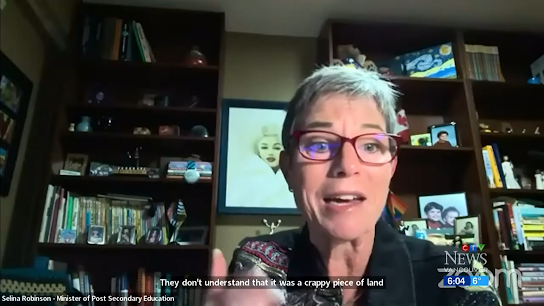A recent report detailed over 500 instances of anti-Palestinian racism in 2022 from nonprofit organizations, the media, and governments, but notes the scope of the problem is likely much wider when individual accounts are taken into consideration
Referring to pre-1948 Palestine as a “crappy piece of land with nothing on it” — as former BC NDP Minister of Postsecondary Education Selina Robinson recently did — is not just a sign of ignorance but an expression of the anti-Palestinian racism (APR) that critics say runs deep within our institutions and across political party lines.
Robinson made the comments at an online panel discussion with Jewish politicians hosted by B'nai Brith Canada at the end of January. Following widespread public backlash and chastising comments from BC Premier David Eby, she stepped down on Feb. 5.
“[Then]-Minister Robinson’s words and actions reflect an explicitly colonial, anti-Indigenous, and anti-Palestinian worldview, which erases Palestinians to justify their dispossession,” Thomas Woodley, president of Canadians for Justice and Peace in the Middle East (CJPME), said in a statement before Robinson stepped down.
While anti-Palestinian racism is nothing new, the term was only officially codified in 2022 by the Arab Canadian Lawyers Association (ACLA). They define anti-Palestinian racism, in part, as “a form of anti-Arab racism that silences, excludes, erases, stereotypes, defames or dehumanizes Palestinians or their narratives.”
Last December, CJPME released a report that found over 500 instances of anti-Palestinian racism in statements by nonprofit organizations, media and governments in 2022.
“Non-profit organizations — several of them self-defined as pro-Israel — were the worst offenders, producing two-thirds (67 percent) of the recorded examples of APR,” the report states. “Media organizations were responsible for most of the remainder (33 percent), with statements from other miscellaneous purveyors of APR comprising the rest.” (more...)
Anti-Palestinian racism permeates Canadian institutions, critics say

No comments:
Post a Comment